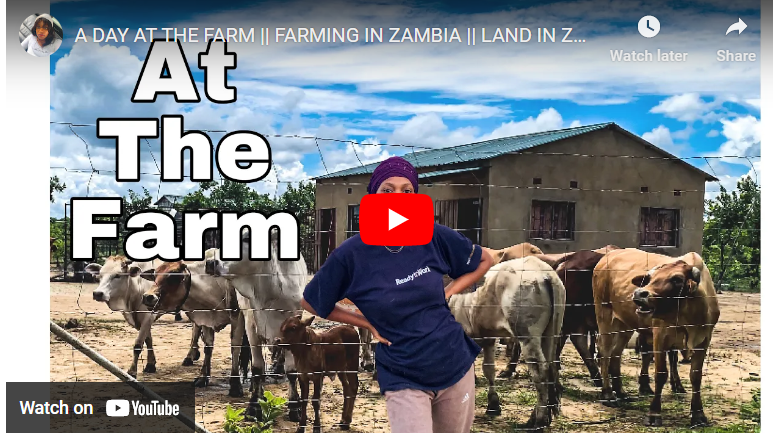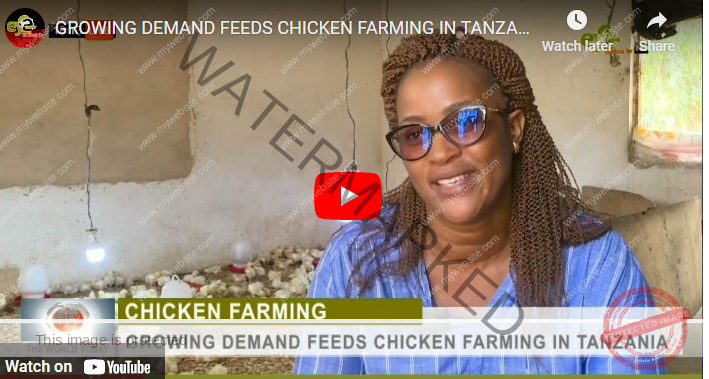These remarkable individuals have not only cultivated thriving businesses but also made a significant impact on the agricultural landscape.
The richest farmers in the UK include prominent figures such as Jim Paice, James Dyson, David Rowland, the Vestey family, and the Bamford family, who have made significant investments in agriculture and farming operations, leveraging their success in other industries to build extensive agricultural portfolios.
From innovative farming practices to diversified ventures, their stories are a testament to hard work, perseverance, and a deep understanding of the land. Join us on a captivating journey as we uncover the secrets behind their accomplishments and gain insight into their strategies for prosperity in the ever-evolving world of farming.
Top 10 Richest Farmers in UK
Prepare to uncover the remarkable journey of agricultural triumph as we delve into the lives of visionary individuals who have redefined farming in the UK.
Among them, standing at the pinnacle of success, is a name that resonates with innovation and ingenuity.
Read Also: Richest Farmers in England
1. Jim Paice:
Jim Paice, a prominent figure in the UK agricultural industry, has made significant contributions both as a former UK Minister of Agriculture and a successful farmer. He is well-respected for his expertise and experience in the field. Apart from his political career, Paice owns farmland in Cambridgeshire, where he actively engages in farming operations.
2. James Dyson:
James Dyson, renowned for his revolutionary vacuum cleaner empire, has also ventured into the agricultural sector. With his entrepreneurial mindset, Dyson has invested in agricultural land and demonstrates a genuine interest in farming. His innovative approach and business acumen contribute to his success in multiple industries.
Read Also: Top 5 Richest Farmers in the Philippines
3. David Rowland:
David Rowland is a successful businessman who has made significant investments in the agricultural sector, particularly in farmland and farming businesses. His astute financial acumen and strategic approach have allowed him to expand his agricultural portfolio, becoming one of the notable figures in the UK farming community.
4. The Vestey Family:
The Vestey family, known for their involvement in the meat and livestock business, holds extensive agricultural land across the UK. With a rich history in the industry, the Vesteys have established themselves as prominent figures, contributing to the growth and development of the agricultural sector in the country.
Read Also: Top 5 Richest Farmers In Ontario
5. Anthony and Christina Bamford:
Anthony and Christina Bamford, part of the Bamford family, have made significant contributions to the agricultural industry through their JCB construction machinery empire. Their success in the manufacturing sector has enabled them to invest in and manage substantial agricultural operations, further strengthening their presence in the farming community.
These individuals and families embody the combination of business acumen, entrepreneurial spirit, and genuine interest in agriculture, making them prominent figures among the richest farmers in the UK. Their contributions have not only propelled their own success but also influenced and shaped the agricultural landscape in the country.
Read Also: Top Richest Farmers in Florida
Factors that Contribute to Farming Success in the UK
- Access to Resources
- Adequate access to land, water, and capital is crucial for farming success in the UK.
- Farmers who have sufficient land for cultivation, reliable water sources, and access to capital for investments are better positioned to achieve success.
- Technological Advancements
- The adoption of modern agricultural technologies plays a significant role in farming success.
- Access to advanced machinery, precision farming tools, and data-driven analytics enables farmers to optimize production, reduce costs, and increase efficiency.
- Market Opportunities
- A diverse and expanding market is essential for farming success.
- Farmers who can identify and capitalize on market trends, consumer preferences, and value-added opportunities have a competitive edge.
- Knowledge and Skills
- Farming success relies on continuous learning and staying updated with industry advancements.
- Farmers who possess sound agricultural knowledge, business acumen, and technical skills are better equipped to make informed decisions and adapt to changing circumstances.
- Government Support and Policies
- Supportive government policies, subsidies, and incentives can contribute to farming success.
- Favorable policies related to land use, taxation, environmental conservation, and research and development encourage sustainable farming practices and provide financial support.
Challenges of Farming in the UK
- Climate Variability
- The UK’s unpredictable weather patterns pose challenges to farming.
- Fluctuations in temperature, rainfall, and extreme weather events can impact crop yields, livestock management, and overall productivity.
- Rising Input Costs
- The increasing costs of inputs, such as fertilizers, seeds, machinery, and fuel, pose financial challenges to farmers.
- Rising input costs can reduce profit margins and require careful budgeting and resource management.
- Market Volatility
- Agricultural markets are subject to price fluctuations and volatility.
- Farmers may face challenges in navigating price variations, market competition, and changing consumer demands.
- Regulatory Compliance
- Farmers must adhere to strict regulatory requirements related to food safety, environmental protection, animal welfare, and labor laws.
- Complying with these regulations can be time-consuming, costly, and require ongoing monitoring and documentation.
- Rural Infrastructure
- Limited access to rural infrastructure, such as transportation networks, storage facilities, and processing units, can impede farming operations and market access.
- Succession Planning
- The aging farming population and challenges associated with generational succession can impact farming success.
- Ensuring a smooth transition of farming operations to the next generation requires careful planning, communication, and knowledge transfer.
Lucrativeness of Farming in the UK
- Market Demand and Consumer Preferences
- The UK has a strong and diverse market demand for agricultural products.
- Consumer preferences for locally produced, organic, and sustainable food create opportunities for farmers to command premium prices and capture niche markets.
- Government Support and Subsidies
- The UK government provides various forms of financial support and subsidies to farmers.
- These incentives aim to enhance farming productivity, support sustainable practices, and ensure food security.
- Subsidies can contribute to the profitability of farming operations and provide a stable income source.
- Value-Added Opportunities
- Farming in the UK offers opportunities for value addition and diversification.
- Farmers can explore adding value to their products through processing, packaging, and branding, enabling them to capture higher margins in the market.
- Export Potential
- The UK agricultural sector has export potential, especially with post-Brexit trade opportunities.
- Access to international markets can increase the profitability of farming businesses, especially for specialized and high-value products.
- Tourism and Agri-Tourism
- The UK’s rich cultural heritage and rural landscapes make it an attractive destination for agri-tourism.
- Farmers can generate additional income by offering farm tours, farm stays, farm-to-table experiences, and other agritourism activities.
- Renewable Energy
- The UK government incentivizes renewable energy generation through programs like the Feed-in Tariff and the Renewable Heat Incentive.
- Farmers can capitalize on this by investing in on-farm renewable energy systems, such as solar panels or wind turbines, to generate additional income.
- Grants and Funding Opportunities
- Various grants and funding schemes are available in the UK to support farm businesses.
- These include grants for equipment purchase, infrastructure development, research and development, and environmental conservation.
- Accessing such funding can enhance the profitability and competitiveness of farming enterprises.
- Land Appreciation
- Land appreciation in the UK offers potential financial benefits to farmers.
- Over time, the value of agricultural land can increase, providing opportunities for capital gains or leveraging assets for further investments.
Are Farmers Rich in the UK
Farmers in the UK, like in any other country, exhibit a range of financial situations.
While some farmers are successful and prosperous, it’s important to note that not all farmers are wealthy or rich.
The income and wealth of farmers can vary depending on several factors, including farm size, agricultural practices, market conditions, and diversification of ventures.
Are Farmers Wealthy UK
Determining the average earnings of farmers in the UK can be challenging due to the diverse nature of farming enterprises and the absence of comprehensive data on individual farmer incomes.
However, data from the Office for National Statistics suggests that the average farm income in the UK can range widely and is influenced by factors such as farm size, subsidies, and diversification activities.
How Much Does the Average UK Farmer Earn
It’s also worth noting that the wealthiest farmers in the UK are typically those who have successfully diversified their agricultural businesses, invested in technology, and capitalized on market opportunities.
However, specific information on the earnings of individual farmers is not readily available to the public.
How Much Does the Average Farmer make in the UK
Regarding the richest farmers in the UK, the list can vary depending on factors such as net worth, land holdings, and diversification of ventures.
High-profile individuals such as Sir James Dyson have been recognized for their wealth and land ownership, but comprehensive rankings of the richest farmers in the UK may not be readily available.
Conclusion
As we conclude our exploration of the richest farmers in the UK, we are left inspired by their achievements and the immense impact they have had on the agricultural industry. These visionary individuals have not only achieved financial success but have also shaped the future of farming, leaving a lasting legacy for generations to come.



